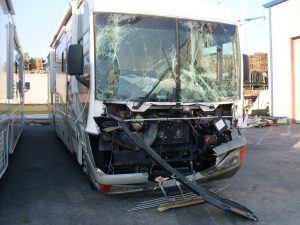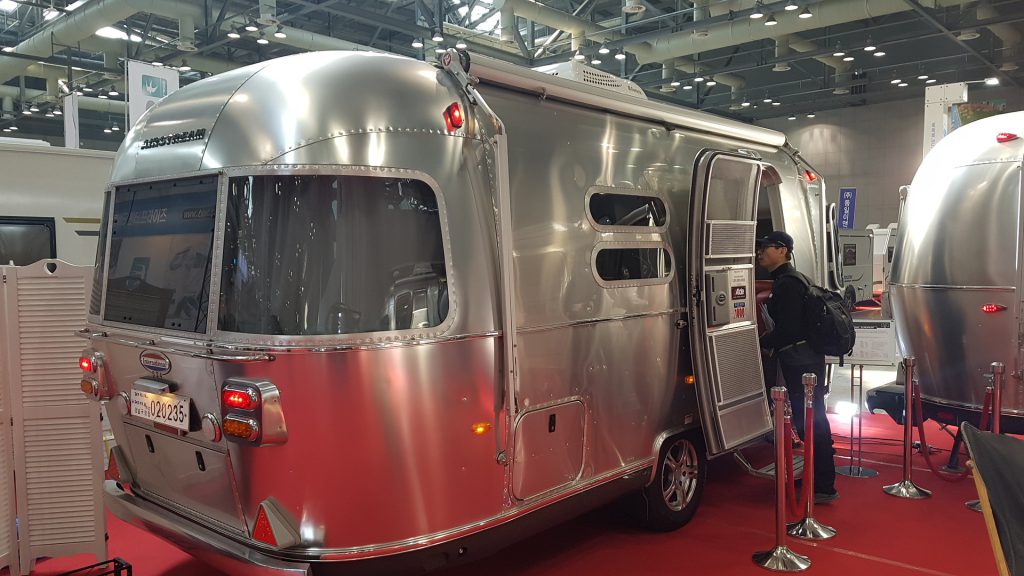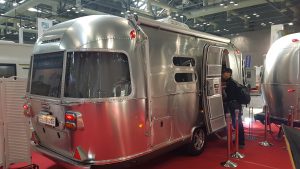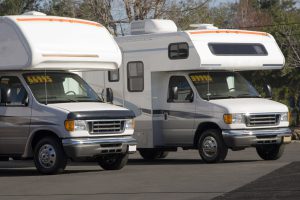Buying an RV is a big decision. It’s exciting and fun, but also a little overwhelming. We’re here to provide you with a guide to improve your experience, from your first peek at an RV for Sale listing to getting the RV repair you need.
Owning an RV is like owning both a home and a car all in one package. There are a lot of unique aspects to RV life that impact how you buy, what you buy, and how you take care of your investment.
Let’s start with the purchase.
Guide to Buying an RV
New or Used?
Whether you’re buying a small camper, a travel trailer, or a luxury motorhome, you have some decisions to make before you even start looking. The first one is whether to buy a used RV or a new one.
We’ve talked before about the pros and cons of used and new RVs. There’s no single right choice that will be best for everyone. Deciding on new vs. used comes down to a few critical factors.
- Do you want to be the vehicle’s first owner? Some people want to know that they are the first ones to use every amenity.
- Do you want the latest technology and amenities? New coaches will have the newest, most updated systems.
- Do you love warranties? Used RVs are very unlikely to have any warranties.
- Do you want to save money? Used RVs are, in almost every case, less expensive than new ones.
- Do you want someone else to work the bugs out of the vehicle? A brand new RV always needs some tweaking. Some of you want someone else to take those initial trips, identify immediate issues, and deal with them. We don’t blame you.
- Do you want a motorhome with vintage charm? If you’re looking for something to express your personality, the used market is for you!
- Do you want to upgrade and customize or be ready to hit the road immediately? Those of you who want custom features can find great bargains on the used market and make upgrades. If you want a move-in-ready RV, the new market may be the better choice.
Check out our full article on choosing between a new and used RV. You’ll find tips and hints to help you decide which market is better for your needs. Once you’ve decided on either a new or used camper or trailer, you still have some work to do.
The more pre-purchase decisions you make, the easier it will be to narrow your search for the perfect RV for your RV lifestyle. Walking onto a lot or browsing an internet site with thousands of vehicles can fluster even the most confident buyer.
Set Your Budget
The most important decision to make before you shop is BUDGET. Sit down and figure out how much you can comfortably spend on your new (at least to you) RV. Once you determine that number, do not look at anything with a higher price tag.
That seems a little harsh, doesn’t it? But you’ll save yourself time and money by not looking outside your means. It’s no fun to set out to shop for your perfect coach only to find that everything on the lot is out of your price range.
There are great RVs for all budgets. Don’t torture yourself looking at luxury vehicles unless you can comfortably afford them. You don’t want your RV to cause stress because you struggle with the payments.
Setting your budget will help guide you to dealers or sites that have vehicles in your price range.
Decisions, Decisions
Now that you know how much you’re willing to spend, it’s time to decide on some RV basics. These are things you can figure out by renting or borrowing a camper, trailer, or motorhome. Don’t buy anything before you make these choices.
- Size. Are you looking for a small RV to upgrade from tent camping? Do you need space for kids, pets, or extra gear? Do you want to take long trips off the grid or short jaunts to campgrounds? These all factor into what size RV you choose.
- Amenities. These are the things you need and want in your vehicle. Do you want a bathroom and shower? Do you want a kitchen? Are you looking for just a bed and storage? What you want in your RV is also going to help determine what size vehicle you purchase. Break your list down by priority.
- Drive or Tow? Do you want to drive a motorhome or tow a travel trailer? It’s a great idea to try both. Some people love to drive a big rig while others prefer to have a tow vehicle.
Shop Smart
It’s time to shop! Before you do, ask around about reliable dealers or sites. Check with family or friends who own an RV. Or join an online forum for RV owners in your area. Doing your homework and finding reputable sellers can prevent a whole lot of heartache down the road.
Don’t be afraid to ask questions as you shop for an RV. Ask about anything and everything important to you in this vehicle. If you don’t understand the answer, ask for more details. This is your money and your vacation home. Don’t let anyone talk over your head.
You should also make contact with a local RV shop as you begin your search. Your local shop will be the most valuable resource you have throughout your ownership of your motorhome or trailer.
If you decide to buy a used RV, have it inspected by a trusted RV shop before you make the purchase.
You wouldn’t buy a car without having a mechanic look at it. You wouldn’t buy a home without an inspection. Don’t buy an RV until you’re satisfied that you know everything about its history and current condition.
RV Maintenance
Well, you’ve made your purchase! Whether the search was short or long, you have your new vacation companion. What’s next? You need to take good care of your new vehicle so it lasts a long time with few problems.
That means setting up a maintenance plan.
Bring your coach or trailer into your local shop and set up a schedule for routine maintenance. Just like a car, your RV needs regular attention to operate properly.
Your shop will do everything from checking seals to a general tune-up to winterizing. How often you bring it in depends on your RV, how much you travel, and how much maintenance you plan to do yourself.
Beware that even the most devoted DIYer will need help from a professional on occasion.
RV maintenance is the secret to a happy RV life. Your shop will catch small issues before they become expensive repairs. They’ll prevent excess wear and tear by keeping filters changed, sliders sliding, and plumbing running. Regular sealant inspections can prevent devastating water damage.
At Leisure Coachworks we set up comprehensive maintenance plans for our customers. Every camper, trailer, or coach has its own needs. Your maintenance plan is designed for your RV and your RV lifestyle.
Your maintenance plan may include inspection and repair/maintenance of AC and furnace, plumbing and holding tanks, slide out gears and motors, 12v electrical systems, ventilation and appliances, roof and awnings, and much, much more.
An ounce of RV maintenance is worth a pound of RV repair. Regular RV service saves you money, time, and trouble down the road. Literally. It will help keep you from getting stuck on the road.
RV Repair
We don’t like it either, but RV repair is a part of RV life. Even with the most careful and diligent maintenance sometimes things get damaged or wear out.
Regular service replaces parts that are getting worn before they cause a breakdown. Damage from accidents and Mother Nature are just part of the joys of owning a home on wheels.
RV repair is a lot easier if you have good insurance. Your RV is an investment worth protecting. At Leisure Coachworks we work with almost all carriers to get your rig up and running.
Make sure that the shop you choose has experience working on the type of RV you own. We’ve seen and worked on just about every type of camper, trailer, and motorhome out there, so we’re not easy to surprise. A knowledgeable, experienced team will complete your repairs more quickly and with a better outcome.
If your RV does get damaged, even if the damage is minor, don’t let it sit. A cracked mirror from a falling tree branch can lead to larger problems over time. The biggest culprit is often water.
Any damage, large or small, can leave openings for water to seep in and create a huge mess. Water damage can go from minimal to disastrous in short order. If you’re not sure whether you have a leak, it’s always better to check than fix the damage later.

If you’re involved in any sort of collision, be sure to have your RV thoroughly inspected. A coach doesn’t need to look like this to require repairs.
A collision can result in damage you can’t see. That damage can shorten the life of parts and lead to unexpected breakdowns. It’s better to have it fixed or parts replaced before you’re stranded at a campground.
Check out our article about what to do after a collision. It provides a thorough guide for a potentially nerve-wracking experience. Having a plan in place in case of an accident will help you make the best choices for your family and your RV.
The Bottom Line
Buying, maintaining, and repairing an RV looks like a full-time job! But it’s not, especially if you take the advice of professionals. Good preparation before you buy and a trusted RV shop can keep your RV life relaxed and your rig in excellent condition.
The time to worry about your RV is not when you’re already on the road. Take good care of your investment so you can enjoy your vacations without incident. And if you do find yourself needing repairs, that local shop you found back before you set foot in a showroom will be there to help.
At Leisure Coachworks we’re proud of the skill, experience, and craftsmanship that go into every one of our jobs. Contact us today with questions about buying an RV, RV maintenance, or RV repair. Or stop on by our full-service shop in Fontana, CA.


